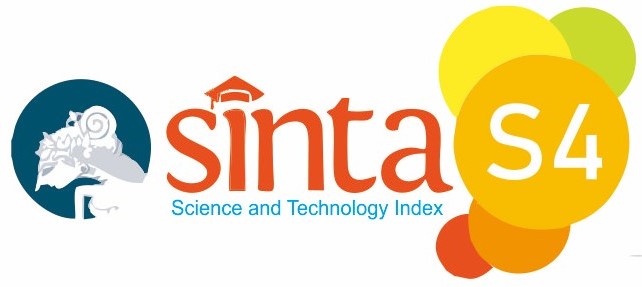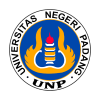OPTIMALISASI PENERAPAN PEMBELAJARAN KERJASAMA TIPE JIGSAW TERHADAP HASIL BELAJAR SISWA DASAR TEKNIK MESIN
Abstract
Belajar adalah interaksi yang menekankan bahwa proses pembelajaran terjadi melalui hubungan antara pengajar dan peserta didik sebagai hasil dari pengalaman yang diperkuat untuk diimplementasikan dalam kehidupan sehari-hari. Saat ini, metode pembelajaran yang umumnya digunakan masih cenderung bersifat konvensional, dengan guru sebagai sumber utama informasi dan siswa lebih sebagai penerima pengetahuan. Kondisi ini mungkin tidak optimal untuk mengajarkan materi Dasar Teknik Mesin yang membutuhkan pemahaman mendalam dan keterampilan praktis. Penelitian ini berfokus pada optimalisasi penerapan pembelajaran Kooperatif Tipe Jigsaw dalam mata pelajaran dasar teknik mesin di SMK, menggunakan metode Penelitian Tindakan Kelas dengan selama tiga siklus. Evaluasi hasil belajar siswa dilakukan melalui tes dan proyek. Tujuannya adalah meningkatkan hasil belajar dan keterlibatan siswa. Data dianalisis dengan mengonversi skor ke skala 1-4 untuk menentukan kategori predikat hasil belajar. Penelitian diharapkan memberikan kontribusi signifikan untuk meningkatkan kualitas pendidikan teknik mesin dasar di SMK. Penggunaan model Pembelajaran Kooperatif Tipe Jigsaw pada Mata Pelajaran Mekanika Teknik Dasar di SMK Negeri 1 Sumbar berhasil meningkatkan hasil belajar siswa dari siklus ke siklus, dengan ketuntasan klasikal mencapai 88,57% pada siklus III. Model ini terbukti efektif dalam meningkatkan prestasi belajar siswa pada mata pelajaran Pekerjaan Mekanik Dasar di SMK Negeri 1 Sumbar. Kesimpulannya, penerapan model Pembelajaran Kooperatif Tipe Jigsaw efektif dalam meningkatkan hasil belajar siswa.
References
Deria, A., Fadilah, M., Nisa, I. K., Fortuna, A., Fajriansyah, B., Salsabila, P., Mardiansyah, R., Alika, F. A., Lismita, L., & Junita, U. (2023). Effect of Project Based Learning (PJBL) Learning Model on Creative Thinking Ability of High School Biology Students: A Literature Review. PAKAR Pendidikan, 21(1), 58–64. https://doi.org/10.24036/pakar.v21i1.288
Eliawati, T., & Harahap, D. I. (2020). Classroom Action Research: Measuring Integration of Character Education in Language Learning. Proceedings of the 4th Annual International Seminar on Transformative Education and Educational Leadership, 384, 260–263. https://doi.org/10.2991/aisteel-19.2019.56
Halimah, L., & Sukmayadi, V. (2019). The Role of “Jigsaw” Method in Enhancing Indonesian Prospective Teachers’ Pedagogical Knowledge and Communication Skill. International Journal of Instruction, 12(2), 289–304. https://doi.org/10.29333/iji.2019.12219a
Lukita, C., Suwandi, S., Harahap, E. P., Rahardja, U., & Nas, C. (2020). Curriculum 4.0: Adoption of Industry Era 4.0 as Assessment of Higher Education Quality. IJCCS (Indonesian Journal of Computing and Cybernetics Systems), 14(3), 297. https://doi.org/10.22146/ijccs.57321
Meesuk, P., Sramoon, B., & Wongrugsa, A. (2020). Classroom Action Research-based Instruction: The Sustainable Teacher Professional Development Strategy. Journal of Teacher Education for Sustainability, 22(1), 98–110. https://doi.org/10.2478/jtes-2020-0008
Mõttus, R., Wood, D., Condon, D. M., Back, M. D., Baumert, A., Costantini, G., Epskamp, S., Greiff, S., Johnson, W., Lukaszewski, A., Murray, A., Revelle, W., Wright, A. G. C., Yarkoni, T., Ziegler, M., & Zimmermann, J. (2020). Descriptive, Predictive and Explanatory Personality Research: Different Goals, Different Approaches, but a Shared Need to Move Beyond the Big Few Traits. European Journal of Personality, 34(6), 1175–1201. https://doi.org/10.1002/per.2311
Muskhir, M., Luthfi, A., Julian, R., & Fortuna, A. (2023). Exploring iSpring Suite for Android-Based Interactive Instructional Media in Electrical Lighting Installation Subject. International Journal of Interactive Mobile Technologies (IJIM), 17(22), 67–84. https://doi.org/10.3991/ijim.v17i22.42625
Naylor, D., & Nyanjom, J. (2021). Educators’ emotions involved in the transition to online teaching in higher education. Higher Education Research and Development, 40(6), 1236–1250. https://doi.org/10.1080/07294360.2020.1811645
Patricia Aguilera-Hermida, A. (2020). College students’ use and acceptance of emergency online learning due to COVID-19. International Journal of Educational Research Open, 1(July), 100011. https://doi.org/10.1016/j.ijedro.2020.100011
Prasetya, F., Fortuna, A., Samala, A. D., Fajri, B. R., Efendi, F., & Nyamapfene, A. (2023). Effectiveness of Distance Learning Computer Numerical Control Based on Virtual Laboratory Using a Metaverse Platform to Improve Students’ Cognitive Ability and Practice Skills. International Journal of Interactive Mobile Technologies (IJIM), 17(24), 4–21. https://doi.org/10.3991/ijim.v17i24.45019
Prasetya, F., Syahri, B., Fajri, B. R., Wulansari, R. E., & Fortuna, A. (2023). Utilizing Virtual Laboratory to Improve CNC Distance Learning of Vocational Students at Higher Education. TEM Journal, 12(3), 1506–1518. https://doi.org/10.18421/TEM123-31
Sabti, A. A., Md Rashid, S., Nimehchisalem, V., & Darmi, R. (2019). The Impact of Writing Anxiety, Writing Achievement Motivation, and Writing Self-Efficacy on Writing Performance: A Correlational Study of Iraqi Tertiary EFL Learners. SAGE Open, 9(4), 1–13. https://doi.org/10.1177/2158244019894289
Saputra, M. D., Joyoatmojo, S., Wardani, D. K., & Sangka, K. B. (2019). Developing critical-thinking skills through the collaboration of Jigsaw model with problem-based learning model. International Journal of Instruction, 12(1), 1077–1094. https://doi.org/10.29333/iji.2019.12169a
Schneider, S., Krieglstein, F., Beege, M., & Rey, G. D. (2023). Successful learning with whiteboard animations – A question of their procedural character or narrative embedding? Heliyon, 9(2), e13229. https://doi.org/10.1016/j.heliyon.2023.e13229
Soeprijanto, S., Prohantoro, R., Pratama, R., & Ariefin, D. A. (2022). Needs Analysis for Developing Project-Based Learning Outcomes Assessment Models in Electricity Topic at the Center of Excellence Vocational High School. Jurnal Penelitian & Pengembangan Pendidikan Fisika, 8(2), 325–334. https://doi.org/10.21009/1.08214
Suparno, S., Syahril, S., Rahim, B., & K., A. (2019). Development of the Teaching Material at Sheet Metal Course in Program Vocational Mechanical Engineering. International Conference on Technical and Vocational Education and Training, 299, 152–157. https://doi.org/10.2991/ictvet-18.2019.33
Toit-brits, C. (2019). A focus on self-directed learning : The role that educators ’ expectations play in the enhancement of students ’ self -directedness. South African Journal of Education, 39(2), 1–11. https://doi.org/10.15700/saje.v39n2a1645
Trust, T., Woodruff, N., Checrallah, M., & Whalen, J. (2021). Educators’ Interests, Prior Knowledge and Questions Regarding Augmented Reality, Virtual Reality and 3D Printing and Modeling. TechTrends, 65(4), 548–561. https://doi.org/10.1007/s11528-021-00594-9
Whalen, K., & Paez, A. (2021). Student perceptions of reflection and the acquisition of higher-order thinking skills in a university sustainability course. Journal of Geography in Higher Education, 45(1), 108–127. https://doi.org/10.1080/03098265.2020.1804843
Wuryandani, W., & Herwin. (2021). The effect of the think–pair–share model on learning outcomes of civics in elementary school students. Cypriot Journal of Educational Sciences, 16(2), 627–640. https://doi.org/10.18844/CJES.V16I2.5640
Submitted
Copyright (c) 2024 Jurnal Vokasi Mekanika

This work is licensed under a Creative Commons Attribution 4.0 International License.








.svg_.png)


